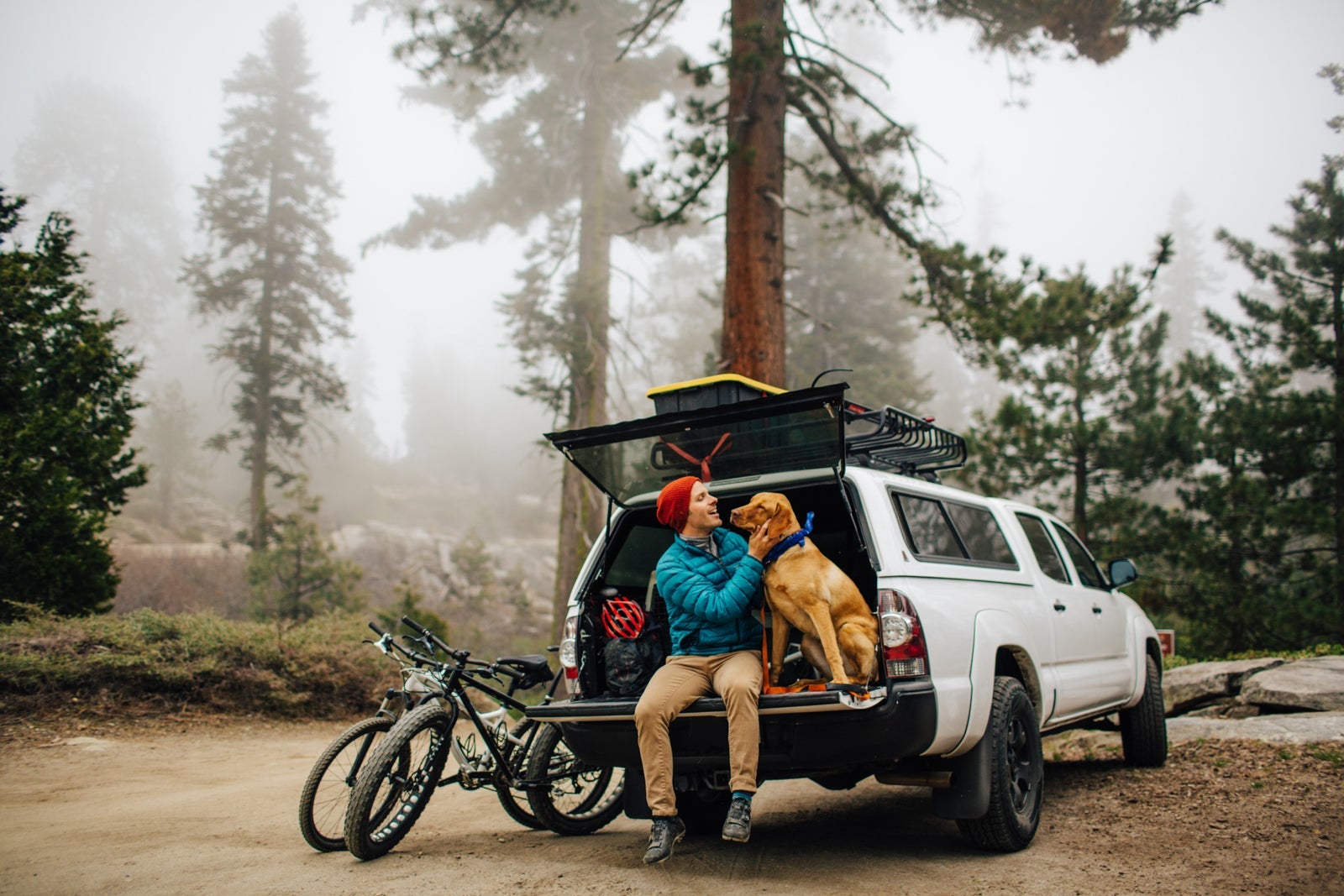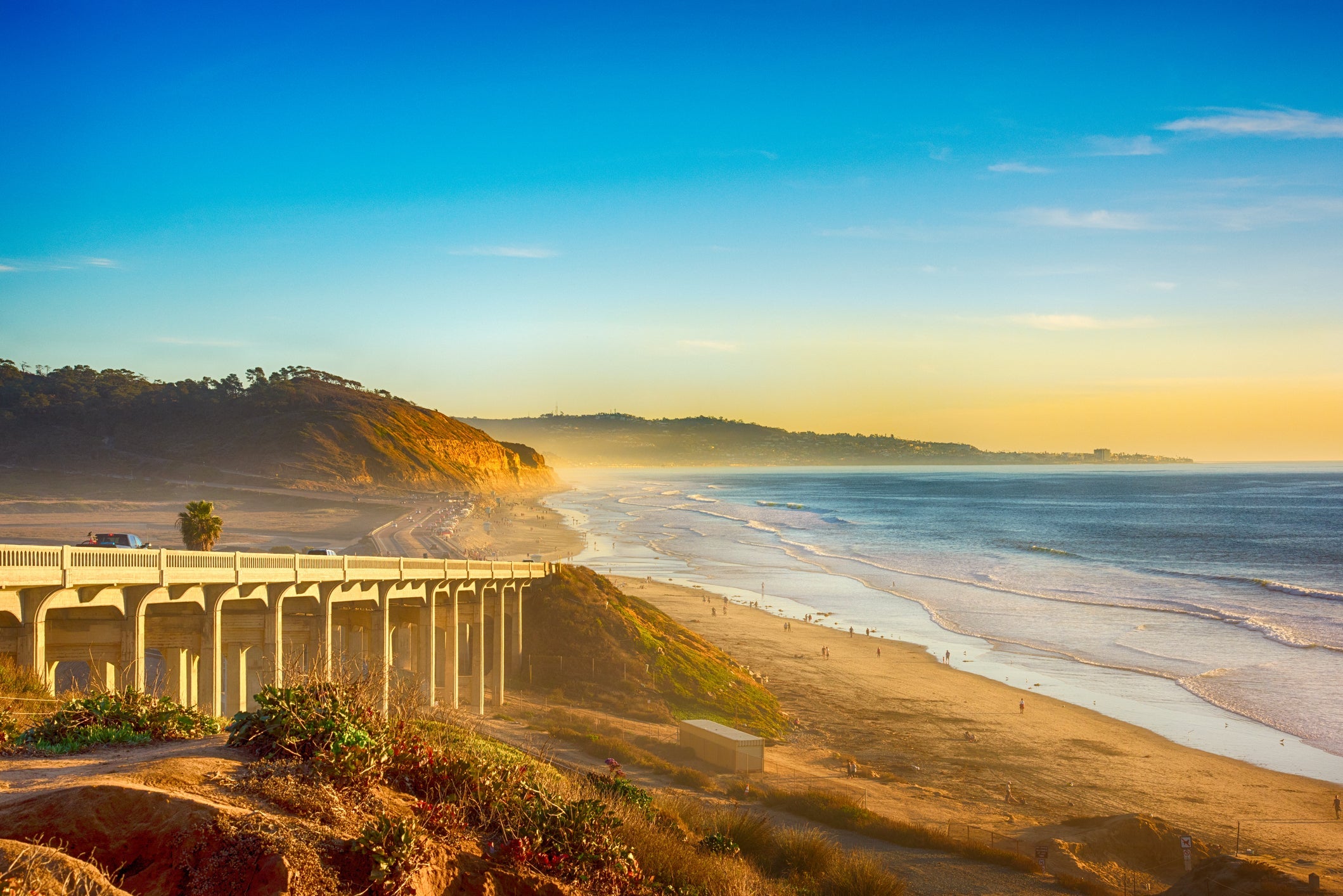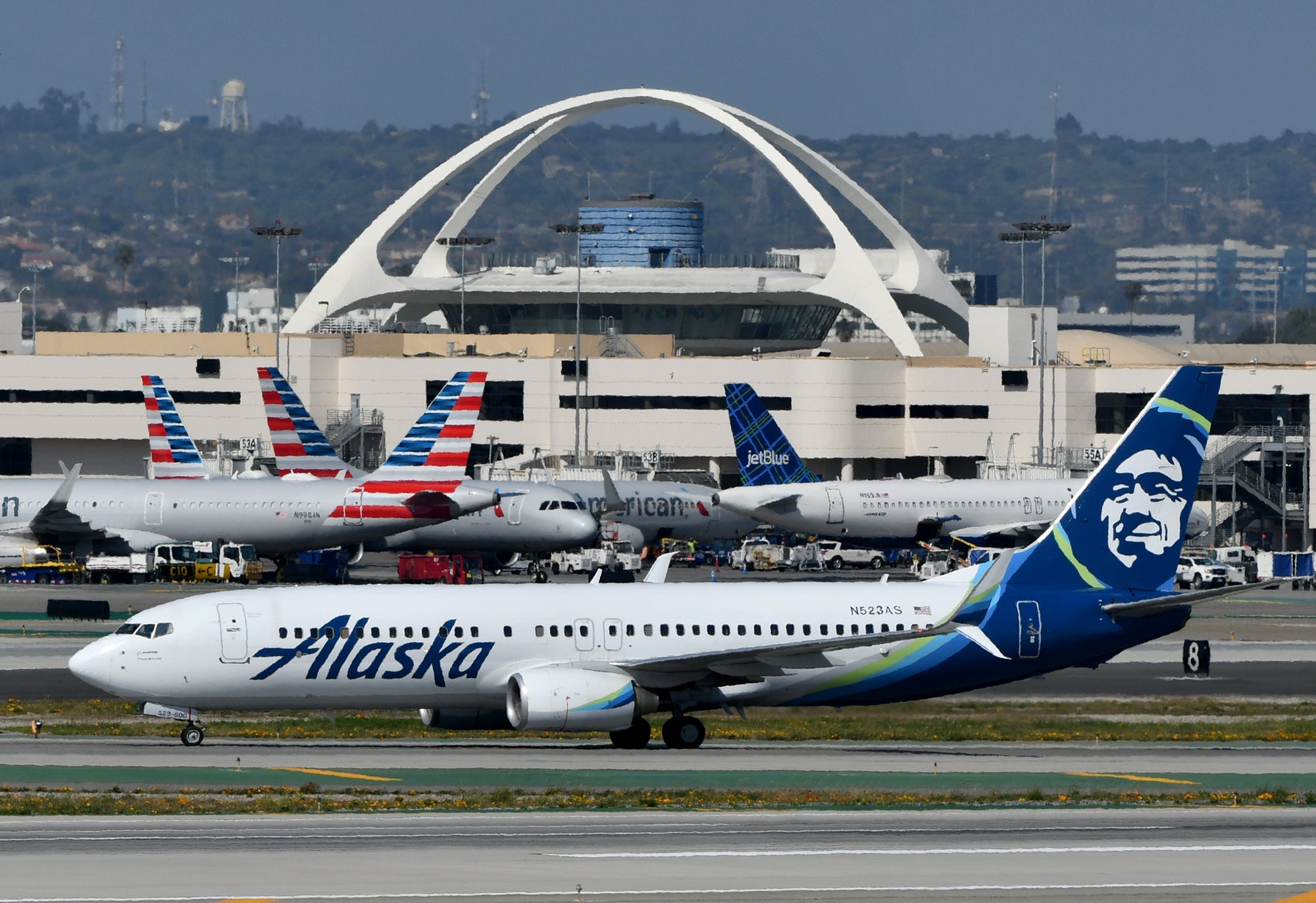Nearly a third of the country is ready to travel this summer — a TPG special report
It's been months since the coronavirus pandemic, which has spread to at least 177 countries and sickened more than 4.7 million people around the globe, caused countries to lock down borders and drove nonessential travel nearly to a halt. Demand for flights and hotel rooms plummeted, and the cruise industry has been shut down altogether.
But across the globe, there are signs of a cautious return to normal.
Visit TPG's guide to all coronavirus news and updates.
Destinations are beginning to ease restrictions. Restaurants are reopening. Beaches are dotted with towels. And many travelers are ready to push forward with new and existing summer travel plans.
TPG conducted a survey from May 13 to 15 about how the coronavirus outbreak has influenced traveler sentiment. And people want to travel — that much is clear. Nearly a third of Americans said they would consider leaving home for a vacation between now and the end of summer. It's a number that's considerably higher than you might expect, given that only about half of Americans planned to take a summer vacation in 2019.
For more TPG news delivered each morning to your inbox, sign up for our daily newsletter.
Travelers warming to summer vacations
TPG surveyed over 2,390 adults in the U.S. about how the coronavirus outbreak has affected their outlook on future travel. Of the 31% who are comfortable with the idea of a summer vacation this year, about 13% are holding off until late in the season. But a majority (17%) are eager to dust off their suitcases, and said they'd be ready to hit the road in early summer — or sooner. Of those earnest travelers, 8% surveyed said they're ready to take a vacation right now.
It's no surprise that travelers are feeling both pent up and unmoored. For frequent flyers especially, a world without travel can be deeply unsatisfying. But even those travelers who are anxious to leave home may not be venturing far afield.
U.S.-based travelers considering travel now are finding comfort in the great outdoors and wide-open roads. And though some travelers would board a plane for an international flight in a heartbeat, far more are making summer vacations possible by piling into a car for a road trip, bound for state and national parks (44%) or charting a course for the nearest stretch of beach (39%).


The appeal of an outdoor getaway right now is clear: Many travelers have spent weeks sheltering in place, rarely leaving their homes or apartments. And sprawling stretches of shoreline or vast parklands promise visitors plenty of space to maintain a safe distance from other travelers. Beaches and parks are also some of the first public spaces to reopen, catapulting them to the top of every traveler's to-do list.
Barba B., a TPG reader from San Diego, said she rented a beach house for a week this summer with other family members. "It is only about 20 minutes from our house," she said, "but a whole different vibe."
Related: National parks begin to reopen to eager crowds: Here's everything you need to know to plan a trip
Proximity to home is also a motivating factor. Before COVID-19 forced the world into a reluctant hibernation, people were already tightening their circles, as the fear of being stranded abroad became a disturbing reality for many travelers.
So, understandably, the security and safety of home continues to be an important anchor for travelers preparing for future travel.
For Americans considering travel in the near future, in-state road trips are overwhelmingly popular (47%), followed closely by out-of-state road trips (41%). Flying isn't completely off the table, though only one in five would consider a domestic flight. That number drops to one in 10 for international flights.
TPG reader Don Barton is among those who won't be flying this summer. Instead, in June, he and his wife will drive to their Eagle Crest Resort timeshare in Redmond, Oregon. "We're fortunate here on the West Coast to have so many great places to see ... within fairly easy driving distance. If we'd had to fly, I think we'd be staying at home throughout the summer and into the fall."
Only 13% of survey respondents said they'd be comfortable with train travel and public transportation, and a mere 7% would consider a cruise — though that number is certainly higher among die-hard cruisers.

Despite the privacy and space vacation rentals often provide, more travelers (28% versus 19%) would prefer the comfort of a resort or hotel than a home vacation rental. It's possible travelers feel more confident in the stringent and more transparent cleaning and sanitation policies of major hotel brands, compared to the less-regulated practices of vacation rentals. Hotels and resorts have generally also offered much more generous cancellation and rebooking policies during this crisis: a crucial component of rebuilding customer confidence in these uncertain times.
Related: Airline coronavirus change and cancellation policies: A complete list of major carriers
Youth movement
Though travelers who live within driving distance of a national park or beach may be among those who feel most confident about summer vacations right now, age and income are also major factors.
Travelers between the ages of 23 and 18 — better known as Generation Z — are the most likely to travel between now and the end of the summer (42%). Nearly one in three (32%) of millennials, who range in age from 24 to 39, are open to traveling before the end of the summer. That number gradually drops as you move through the older generations, with a slight uptick for the oldest respondents, who might be motivated by a stronger sense of urgency.

Current advisories from the U.S. Centers for Disease Control and Prevention (CDC) and other health officials say people 65 and older are among those who are most at risk for severe illness from COVID-19, which might explain how different demographics are responding to the pandemic.
Higher earners, or those individuals making more than $80,000 per year, are also more inclined to travel during this time (40%) compared to just 24% of those making less than $30,000 per year.
What this survey suggests, though does not explicitly say, is that for many travelers, a summer vacation may be simply out of the question this year. According to the most recent numbers from the U.S. Bureau of Labor Statistics (BLS), the unemployment rate soared to 14.7% in April. More than 20 million jobs were lost that month alone, and the very real economic hardships many people are enduring may be adding to the number of travelers who are putting off leisure travel right now.
Related: 10 ways coronavirus could forever change the future of travel
Mitigating concerns
Those who are more hesitant about travel may reenter the world at a slower pace.
When asked about when they'd be ready to venture beyond home for a vacation, 15% said of travelers said they'd wait until fall, or even later in the year. Nearly 30% said they'd wait until 2021 to travel away from home. And 21% said they don't know what to think about future travel.
For many travelers, the decision to fly again is even more fraught. About 40% of travelers say a vaccine for the coronavirus must be available before they feel safe flying again. Other travelers are looking for reassurance from the federal government (23%) or local officials (20%), while 13% of flyers say they're waiting for borders to reopen.

Others say their decision to board a plane hinges on effective treatments, airport screening measures or testing becoming broadly available. Many travelers said mandatory masks on airplanes would be the deciding factor — though plenty of other people said they'd wait until masks were no longer required.
For 11% of travelers, nothing additional needs to happen before they board a plane: They're ready to fly right now.
Related: TPG's Brian Kelly on being ready to start traveling again soon
Preparing for future trips
Whether you're weighing the idea of a summer vacation, are looking ahead to next year or are holding out for medical advancements in the fight against COVID-19, there are steps you can take to safeguard your future travels, no matter when you're ready to book.
Everyday prevention practices, including keeping unwashed hands away from your eyes, nose and mouth; cleaning frequently touched surfaces with an alcohol-based sanitizer; wearing personal protective equipment such as a face mask and gloves; and washing your hands with soap often for at least 20 seconds; can go a long way toward keeping you healthy from the coronavirus, and any other easily communicable diseases.
Being mindful of social distancing is also incredibly important, whether you're part of the outdoor park-bound majority or the 12% of travelers who can't wait for a summer theme park vacation. It may be easier to maintain your distance from others if you're backcountry camping in the wilderness of a remote natural reserve, but the entire travel industry is adjusting to new health and safety demands at a rapid rate.

Whenever possible, it's important to book travel directly with the travel provider. This can make canceling and rebooking much easier if your plans come undone. Keeping a healthy stash of points and miles in your back pocket can also make rescheduling traveler much less difficult — or, at least, expensive — if your plans are waylaid by the coronavirus. Travelers can also take advantage of incredibly flexible cancellation and rebooking policies from major hotel brands, cruises and airlines to arrange future trips with much more latitude than usual.
Whether you're more or less inclined to book travel right now, those who do may want to take a close look at a cancel for any reason travel insurance upgrade. These policies will let you (you guessed it) cancel for any reason, whether you're sick with coronavirus or not. Though you won't get 100% of your money back, you can reclaim a large portion of it. Plus, many travel providers are offering similarly flexible policies — so you can look forward to a summer vacation knowing your valuable travel budget isn't completely on the line.
Widespread testing could also be the key to unlocking travel. Coronavirus tests continue to be in short supply, but viral tests — or, perhaps one day, antibody tests — might be crucial to reopening international borders in a significant way.
Bottom line
The coronavirus pandemic has changed everything, from our daily lives to the way we think about travel. But many people are clearly eager to get outside and continue traveling, even if that means staying closer to home and enjoying more of the great outdoors than normal. This will be the summer of road trips, national park getaways and beach weekends — and even if it's not the summer vacation you planned, a meaningful trip doesn't have to be off the table completely.
Though this continues to be a rapidly evolving situation, all travelers can take steps to limit their anxiety and liability by staying updated and taking extra precautions. So go ahead, pack an extra bottle of hand sanitizer along with your sun hat and purchase a flexible travel insurance policy. These days, you can't underestimate the value of additional peace of mind.
Ultimately, the decision to resume travel is deeply personal, and travelers need to take into consideration their personal risk threshold, health and other factors, such as local and national restrictions and entry policies. But clearly, people all across the country are feeling the powerful pull of travel: The need to explore, to embrace a change of scenery and to satisfy that sometimes insatiable sense of wanderlust.
TPG featured card
at Capital One's secure site
Terms & restrictions apply. See rates & fees.
| 5X miles | Earn 5X miles on hotels, vacation rentals and rental cars booked through Capital One Travel |
| 2X miles | Earn unlimited 2X miles on every purchase, every day |
Pros
- Stellar welcome offer of 75,000 miles after spending $4,000 on purchases in the first three months from account opening. Plus, a $250 Capital One Travel credit to use in your first cardholder year upon account opening.
- You'll earn 2 miles per dollar on every purchase, which means you won't have to worry about memorizing bonus categories
- Rewards are versatile and can be redeemed for a statement credit or transferred to Capital One’s transfer partners
Cons
- Highest bonus-earning categories only on travel booked via Capital One Travel
- LIMITED-TIME OFFER: Enjoy $250 to use on Capital One Travel in your first cardholder year, plus earn 75,000 bonus miles once you spend $4,000 on purchases within the first 3 months from account opening - that’s equal to $1,000 in travel
- Earn unlimited 2X miles on every purchase, every day
- Earn 5X miles on hotels, vacation rentals and rental cars booked through Capital One Travel
- Miles won't expire for the life of the account and there's no limit to how many you can earn
- Receive up to a $120 credit for Global Entry or TSA PreCheck®
- Use your miles to get reimbursed for any travel purchase—or redeem by booking a trip through Capital One Travel
- Enjoy a $50 experience credit and other premium benefits with every hotel and vacation rental booked from the Lifestyle Collection
- Transfer your miles to your choice of 15+ travel loyalty programs
- Top rated mobile app


